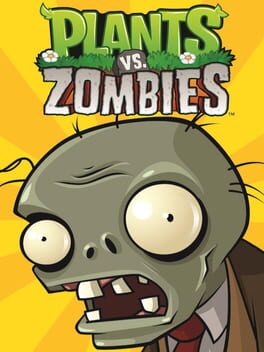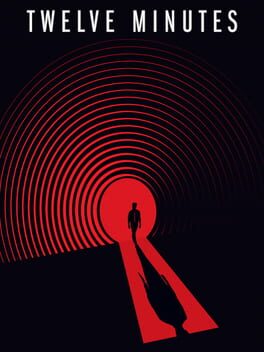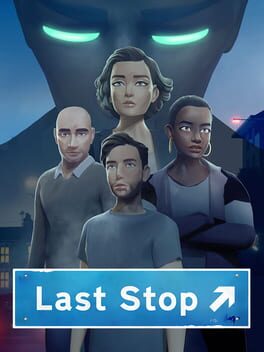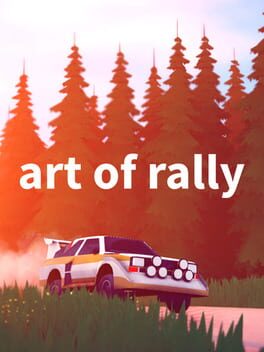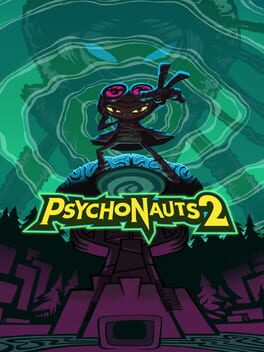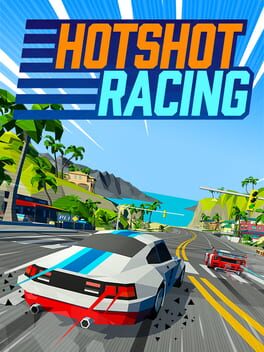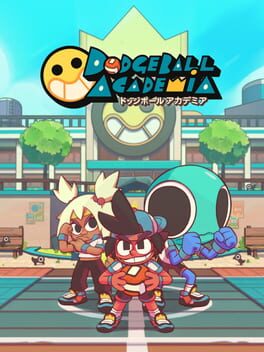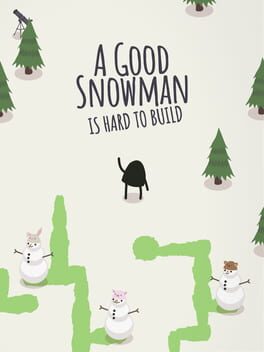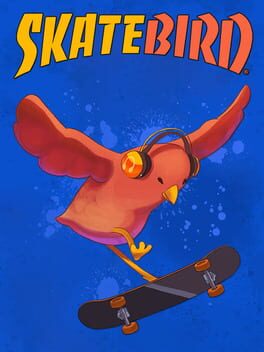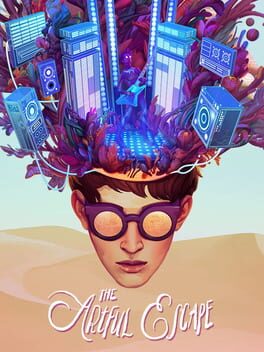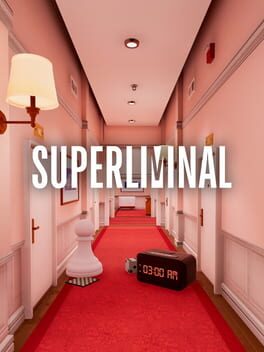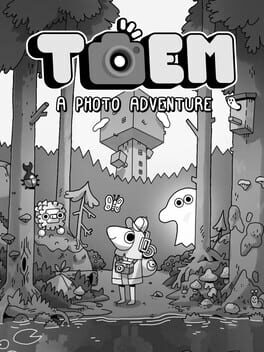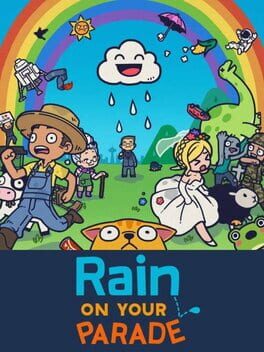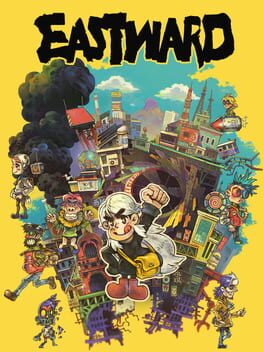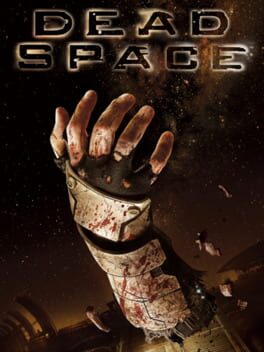tangysphere
BACKER
2009
2021
It's hard to imagine that I'll end up being as disappointed in another video game this year than I was with Twelve Minutes. The potential of utilising a timeloop with a mystery based point and click game would seem like a great mixture of genre and mechanics (and I still think it could be), but you'd be forgiven for thinking the opposite based on this.
The obvious problem here is that you're likely going to have to repeat your actions every now and then, something which has the potential to be a little bit monotonous. And alongside that, the game falls into the genre trap of having very specific solutions for certain puzzles which leads to potentially having to redo the loop entirely. There are a couple of ways to skip ahead but these are very specific and they don't save as much time as you might think.
Even then there was potential to come out of the game with a more positive outlook. Games of this genre can overcome issues like these if story is still intriguing, or the game's writing is able to keep you interested in what might come next. Unfortunately it doesn't take very long to realise that Twelve Minutes has neither of those either.
Part of the reason why these elements don't hit is due to this repetition, where you're provided with info dumps in one loop and then spend the next few working out how to apply that information, meaning there are sizable chunks of gameplay where you're learning nothing other than that a specific way to progress doesn't work. The other major reason is the reliance on multiple twists to further the plot, as well as relying on some of the more cliché mystery/thriller story elements, neither of which are earned. Sure they may theoretically explain away some of the unnatural and flat dialogue (I don't blame McEvoy, Ridley or Dafoe for this, to be clear) but in no way does it come across intentional.
All in all, it's just a massive shame that such an interesting concept ends up being bogged down by an amateurish story. It's not quite David Cage levels of bad but it's also not exactly streets away either...
The obvious problem here is that you're likely going to have to repeat your actions every now and then, something which has the potential to be a little bit monotonous. And alongside that, the game falls into the genre trap of having very specific solutions for certain puzzles which leads to potentially having to redo the loop entirely. There are a couple of ways to skip ahead but these are very specific and they don't save as much time as you might think.
Even then there was potential to come out of the game with a more positive outlook. Games of this genre can overcome issues like these if story is still intriguing, or the game's writing is able to keep you interested in what might come next. Unfortunately it doesn't take very long to realise that Twelve Minutes has neither of those either.
Part of the reason why these elements don't hit is due to this repetition, where you're provided with info dumps in one loop and then spend the next few working out how to apply that information, meaning there are sizable chunks of gameplay where you're learning nothing other than that a specific way to progress doesn't work. The other major reason is the reliance on multiple twists to further the plot, as well as relying on some of the more cliché mystery/thriller story elements, neither of which are earned. Sure they may theoretically explain away some of the unnatural and flat dialogue (I don't blame McEvoy, Ridley or Dafoe for this, to be clear) but in no way does it come across intentional.
All in all, it's just a massive shame that such an interesting concept ends up being bogged down by an amateurish story. It's not quite David Cage levels of bad but it's also not exactly streets away either...
2021
I didn't think I'd be drawn into Last Stop as much as I was, but the mix of genres between each of the stories and the elements of mundanity each character has to go through were weirdly compelling.
It all gets a bit silly at the end and I think that detracts from the overall experience a little but I can't deny I was still having a really good time with it - despite the fact that I don't believe the developers have ever seen a real life human run...
It all gets a bit silly at the end and I think that detracts from the overall experience a little but I can't deny I was still having a really good time with it - despite the fact that I don't believe the developers have ever seen a real life human run...
2020
I don't think many people would argue that one of the main things a racing game needs to get right is the feel of the car, and art of rally gets this spot on and driving around each area in free roam is a great way to get to grips with the handling model.
It's a shame that main single player element kind of gets in the way of that. The game imparts a zen like attitude on you at the very start so finishing anywhere on the rostrum will unlock new cars, and not using all your restarts will guarantee new decals which is very much appreciative, but this is held back by progression through each tier becomes slower and slower as the years go on. Less zen, more tedium by attrition.
The courses themselves are fun to drive though, with enough differing elements on each tack to keep you on your toes - although even in this fantasy land, there are a few too many long straight-hairpin-long straight-hairpin etc. sections for my liking. However while the environments look great thanks to the art style, they only really differ in flora and fauna (or tanks in the case of the German courses) and as such they mostly lack an identity on their own. Added to that, the courses are all selected randomly for each 'season' which feels like a misstep that makes it a lot harder to learn the courses and how the different cars at your disposal work on them.
I'm probably sounding a bit harsh on the game but I think that's because I think there was something truly special that could have been done here. I hope we see another game in the genre from Funselektor which can iron out these kinks.
It's a shame that main single player element kind of gets in the way of that. The game imparts a zen like attitude on you at the very start so finishing anywhere on the rostrum will unlock new cars, and not using all your restarts will guarantee new decals which is very much appreciative, but this is held back by progression through each tier becomes slower and slower as the years go on. Less zen, more tedium by attrition.
The courses themselves are fun to drive though, with enough differing elements on each tack to keep you on your toes - although even in this fantasy land, there are a few too many long straight-hairpin-long straight-hairpin etc. sections for my liking. However while the environments look great thanks to the art style, they only really differ in flora and fauna (or tanks in the case of the German courses) and as such they mostly lack an identity on their own. Added to that, the courses are all selected randomly for each 'season' which feels like a misstep that makes it a lot harder to learn the courses and how the different cars at your disposal work on them.
I'm probably sounding a bit harsh on the game but I think that's because I think there was something truly special that could have been done here. I hope we see another game in the genre from Funselektor which can iron out these kinks.
2021
2020
For better or (mainly) worse, Hotshot Racing goes all in on the aesthetic and looks just like an early 90s arcade racer. Unfortunately there isn't much else on offer - bland track layouts, seriously underwhelming game modes and some very dodgy stereotypes for most of the characters are obvious blemishes, but the rubber-banded AI is probably the worst part of the package.
I don't mind a game keeping things semi-interesting in a race against the computer but the AI just does not let you escape which would be okay if it weren't for the fact that they slow down so hard if you fall even slightly behind.
I don't mind a game keeping things semi-interesting in a race against the computer but the AI just does not let you escape which would be okay if it weren't for the fact that they slow down so hard if you fall even slightly behind.
2021
2021
A poorly controlling game is frustrating at the best of times but for a genre where being mechanically proficient is so important it can be an almost impossible hurdle to jump and unfortunately SkateBIRD fails at even the most basic ollie.
While the dialogue is charming and the models of each individual bird are really quite nice, you're actively fighting the game to have anything close to a good time. The camera just doesn't listen to you when there's a wall even in the vaguest vicinity, as it swings around of its won accord - sometimes the adjustments are minor but other times it's so extreme as to wildly alternate from 0-180 degrees. This is compounded by actually trying to move your bird. I'm glad that the game has options to allow you to turn off balance bars and make it harder for you to bail but the game will still fight with you, where making an even slightly sharp turn results in your bird falling over around 50% of the time. Landing tricks is slightly better but it's still sometimes a lottery as to whether you'll bail or land.
Most of the levels feel empty and void of any character with large gaps of nothingness sitting between different areas. There's also no real logic to where and when missions appear nor any clear indication where you need to go to activate them - there were a couple of occasions where I was skating around a level for upwards of 10 minutes just looking for another bird to be able to progress. And then when you do eventually find them, you'd wish you hadn't as you receive yet another 'collect 5 of these' or 'skate in a straight line' quest.
There are parts that I liked but they were drowned out heavily by the feeling that I was wasting my time. A massive shame as I think the idea does have some legs but right now it's just a bit of a mess. A charming mess, but a smiley face on a bin bag can only go so far.
While the dialogue is charming and the models of each individual bird are really quite nice, you're actively fighting the game to have anything close to a good time. The camera just doesn't listen to you when there's a wall even in the vaguest vicinity, as it swings around of its won accord - sometimes the adjustments are minor but other times it's so extreme as to wildly alternate from 0-180 degrees. This is compounded by actually trying to move your bird. I'm glad that the game has options to allow you to turn off balance bars and make it harder for you to bail but the game will still fight with you, where making an even slightly sharp turn results in your bird falling over around 50% of the time. Landing tricks is slightly better but it's still sometimes a lottery as to whether you'll bail or land.
Most of the levels feel empty and void of any character with large gaps of nothingness sitting between different areas. There's also no real logic to where and when missions appear nor any clear indication where you need to go to activate them - there were a couple of occasions where I was skating around a level for upwards of 10 minutes just looking for another bird to be able to progress. And then when you do eventually find them, you'd wish you hadn't as you receive yet another 'collect 5 of these' or 'skate in a straight line' quest.
There are parts that I liked but they were drowned out heavily by the feeling that I was wasting my time. A massive shame as I think the idea does have some legs but right now it's just a bit of a mess. A charming mess, but a smiley face on a bin bag can only go so far.
2021
The Artful Escape is a coming of age space opera about being true to yourself that is also a complete audiovisual treat. The story is simultaneously simple and over the top but remains well written throughout and it's also nice to see an Annapurna game with a star studded cast have more to work with than previous attempts this year, fitting in more naturally with solid performances and not overshadowing the game itself.
Outside of some light platforming and Simon Says sections there isn't a whole lot in terms of challenge, but for me the lack of a challenge is actually a benefit to the whole, tying in with a theme about playing what you want to play in the way you want to play it.
The slick animations and vivid, colourful landscapes certainly help with this as does an absolutely killer soundtrack, from folksy beginnings to full-on electrifying Bill & Ted-esque solos. Another boon is having a dedicated button in each level to shred your guitar along with the background music of each environment you visit, something which never got old.
Outside of some light platforming and Simon Says sections there isn't a whole lot in terms of challenge, but for me the lack of a challenge is actually a benefit to the whole, tying in with a theme about playing what you want to play in the way you want to play it.
The slick animations and vivid, colourful landscapes certainly help with this as does an absolutely killer soundtrack, from folksy beginnings to full-on electrifying Bill & Ted-esque solos. Another boon is having a dedicated button in each level to shred your guitar along with the background music of each environment you visit, something which never got old.
2019
Some fairly neat puzzles but I don't think it really went far enough with some of the ideas.
I'm possibly also a bit down on it as I wanted to replay with the developer commentary (more of this sort of thing in games please!) after finishing but the game didn't seem to recognise I'd completed it and when it returned to the menu after the credits I could only restart from chapter 3.
I'm possibly also a bit down on it as I wanted to replay with the developer commentary (more of this sort of thing in games please!) after finishing but the game didn't seem to recognise I'd completed it and when it returned to the menu after the credits I could only restart from chapter 3.
2021
I kind of wish TOEM had a bit more to say and show, but I was still pretty taken in by its relaxing atmosphere. Snapping pictures at your own pace is pretty satisfying across the varied black and white environments and while the puzzles don't require too much effort to solve, that's not really the point - it's about the journey and people you meet along the way
2021
After half an hour I was very close to putting this down - ruining people's day seemed fun at first but was getting a little bit old quickly, and I was getting a little tired with some of the meme humour. Thankfully that mostly changed once I hit the first non-conventional level and realised that Rain on Your Parade was basically What the Golf?! but with a cloud.
There was still some meme humour to deal with (and very outdated meme humour at that - we have an Antonie Dodson reference in here) but everything else became more quirky and charming as you receive more cloud abilities, and with fun ideas for levels cropping up and then being thrown out just as quickly to not overstay their welcome.
All that and not a single rubbish cloud-wifi joke in sight. Kudos.
There was still some meme humour to deal with (and very outdated meme humour at that - we have an Antonie Dodson reference in here) but everything else became more quirky and charming as you receive more cloud abilities, and with fun ideas for levels cropping up and then being thrown out just as quickly to not overstay their welcome.
All that and not a single rubbish cloud-wifi joke in sight. Kudos.
2021
Eastward is a slow game. I put that out there not as a criticism but as a fact, and if it doesn't click with you then that's 100% fine; poor pacing can completely drain interest in a game for some people (and has done so for me in the past).
But slow doesn't necessarily have to mean bad. Eastward is very deliberate in its slower structure and I think the game as a whole actually benefits from that. I believe that's partly due to how I played it - no more than 2 hours a day, partly sticking to the chapter structure of the game - but also as it allows the player to engross themselves in the (very beautifully animated) world and learn more about the characters dotted around each of the various locations you travel through.
I also quite liked how the overarching story itself is sometimes not super explicit in how it's told, instead relying on you to put pieces together from conversations with various townsfolk either in side missions or just from general dialogue. And let's talk about these characters a bit more as while this game is certainly one of those 'it's about the journey' kind of stories, 'the people you meet along the way' are just as important. They're well-written and their dialogue doesn't come across as forced or unnatural and most important of all I was interested in what they had to say.
As for the non-story sections, well the combat is simple but has a satisfying loop and some of the weapons you get are pretty fun to play with. There are also some decent puzzles in play as you explore these monster-addled areas with two characters who can split off and each have separate abilities to solve these conundrums. There's even a very basic 8-bit roguelite RPG included that is surprisingly fun to play through (and draws some parallels to the main game world).
Finally I'd like to touch upon the nature of endings in video games, and media in general. There is occasionally the idea out there that if a story isn't wrapped up neatly with a bow that explains everything then it hasn't done a good job but I think that's an uncharitable read on things. As long as a story reaches a conclusion that feels natural and feels thematically correct then I don't really see an issue in certain elements not being fully explained or elaborated upon. Eastward takes this route and as with the pacing issues I think some people will inevitably leave disappointed, but the ending in play felt natural for Sam and John and I'm very impressed with how everything in the game turned out.
Eastward probably doesn't quite reach the heights of being my favourite game of 2021, but it is one of my favourite game experiences and one I'd seriously recommend to anyone after a slow burn road trip adventure.
But slow doesn't necessarily have to mean bad. Eastward is very deliberate in its slower structure and I think the game as a whole actually benefits from that. I believe that's partly due to how I played it - no more than 2 hours a day, partly sticking to the chapter structure of the game - but also as it allows the player to engross themselves in the (very beautifully animated) world and learn more about the characters dotted around each of the various locations you travel through.
I also quite liked how the overarching story itself is sometimes not super explicit in how it's told, instead relying on you to put pieces together from conversations with various townsfolk either in side missions or just from general dialogue. And let's talk about these characters a bit more as while this game is certainly one of those 'it's about the journey' kind of stories, 'the people you meet along the way' are just as important. They're well-written and their dialogue doesn't come across as forced or unnatural and most important of all I was interested in what they had to say.
As for the non-story sections, well the combat is simple but has a satisfying loop and some of the weapons you get are pretty fun to play with. There are also some decent puzzles in play as you explore these monster-addled areas with two characters who can split off and each have separate abilities to solve these conundrums. There's even a very basic 8-bit roguelite RPG included that is surprisingly fun to play through (and draws some parallels to the main game world).
Finally I'd like to touch upon the nature of endings in video games, and media in general. There is occasionally the idea out there that if a story isn't wrapped up neatly with a bow that explains everything then it hasn't done a good job but I think that's an uncharitable read on things. As long as a story reaches a conclusion that feels natural and feels thematically correct then I don't really see an issue in certain elements not being fully explained or elaborated upon. Eastward takes this route and as with the pacing issues I think some people will inevitably leave disappointed, but the ending in play felt natural for Sam and John and I'm very impressed with how everything in the game turned out.
Eastward probably doesn't quite reach the heights of being my favourite game of 2021, but it is one of my favourite game experiences and one I'd seriously recommend to anyone after a slow burn road trip adventure.
2008
I used to be a big defender of Isaac the silent protagonist but on this playthrough, him not replying to direct questions and other characters just pretending he had seemed very stupid.
But thankfully the rest of the game holds up (mostly - those turret sections can suck an egg), from the still rather impressive visuals to the constrictive ship design with its oppressive atmosphere which has more character than the people onboard
But thankfully the rest of the game holds up (mostly - those turret sections can suck an egg), from the still rather impressive visuals to the constrictive ship design with its oppressive atmosphere which has more character than the people onboard
